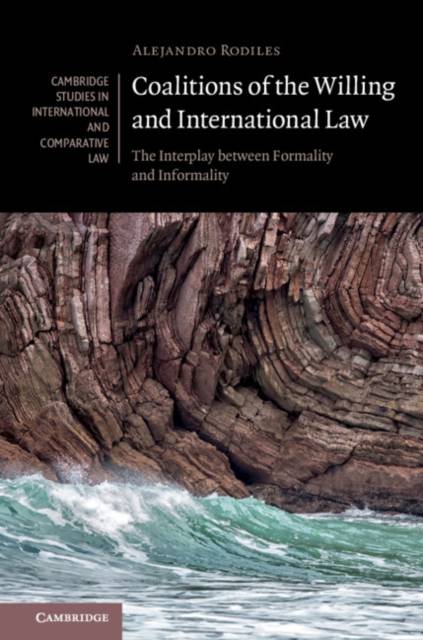
- Afhalen na 1 uur in een winkel met voorraad
- Gratis thuislevering in België vanaf € 30
- Ruim aanbod met 7 miljoen producten
- Afhalen na 1 uur in een winkel met voorraad
- Gratis thuislevering in België vanaf € 30
- Ruim aanbod met 7 miljoen producten
Zoeken
Coalitions of the Willing and International Law
The Interplay Between Formality and Informality
Alejandro Rodiles
€ 139,95
+ 279 punten
Omschrijving
Global action and regulation is increasingly the result of the interplay between formality and informality. From the management of State conduct in international security to the coordination of national policies in climate change, international organizations work ever closer with coalitions of the willing. This book carefully describes this dynamic game, showing that it consists of transformative orchestration strategies and quasi-formalization processes. On the institutional plane, coalitions of the willing turn into 'durable efforts', while international organizations perform as 'platforms' within broader regime complexes. On the normative level, informal standards are framed in legal language and bestowed with the force of law, while legal norms are attached to multilayered schemes of implementation, characterized by pragmatic correspondences, persuasion tactics, and conceptual framing. Understanding how this interplay alters the notion of 'international legality' is crucial for the necessary recalibrations of the political ideals that will inform the rule of law in global governance.
Specificaties
Betrokkenen
- Auteur(s):
- Uitgeverij:
Inhoud
- Aantal bladzijden:
- 314
- Taal:
- Engels
- Reeks:
- Reeksnummer:
- nr. 135
Eigenschappen
- Productcode (EAN):
- 9781108493659
- Verschijningsdatum:
- 11/10/2018
- Uitvoering:
- Hardcover
- Formaat:
- Genaaid
- Afmetingen:
- 181 mm x 234 mm
- Gewicht:
- 621 g

Alleen bij Standaard Boekhandel
+ 279 punten op je klantenkaart van Standaard Boekhandel
Beoordelingen
We publiceren alleen reviews die voldoen aan de voorwaarden voor reviews. Bekijk onze voorwaarden voor reviews.











